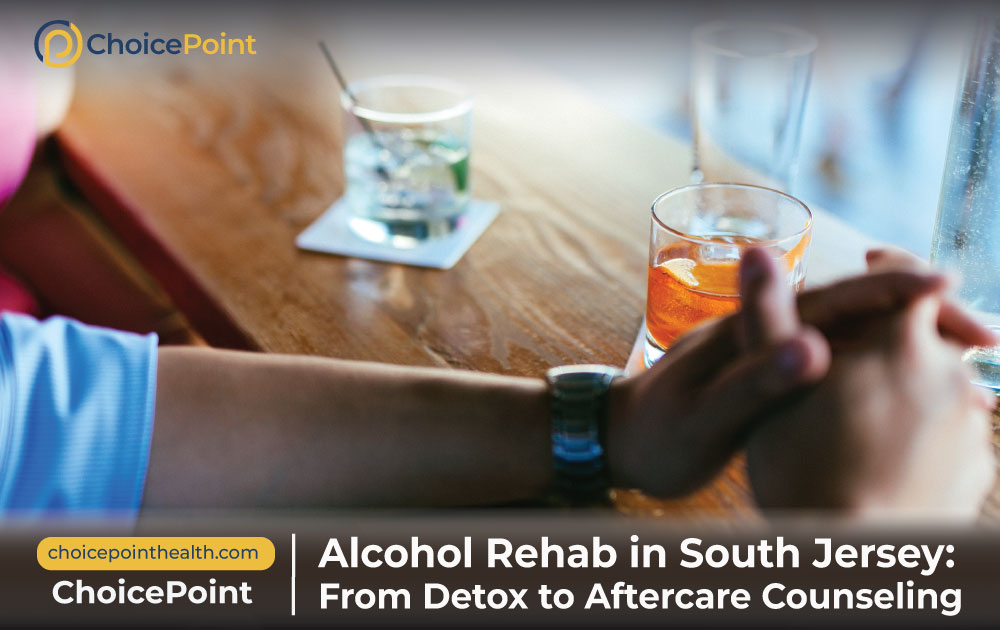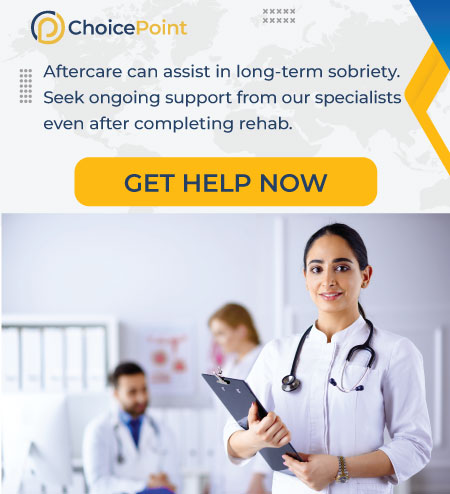It is estimated that 894,000 adults in the US were diagnosed with alcohol use disorder. South Jersey, a region of seven counties, also suffers from addiction. According to recent data, about 174 people in South Jersey died from alcohol. The availability of early interventions and appropriate treatments in the region is vital. If you or your loved one struggle with AUD and are seeking an alcohol rehab South Jersey, this article will work as a guide for finding one!
Table of Contents
South Jersey Alcohol Consumption By Counties
South Jersey comprises a very small part of New Jersey, and yet alcohol consumption is rampant. Here are the statistics on Ethanol (Alcohol) use in South Jersey:
Camden County
Camden is a beautiful county, but unfortunately, it had the most deaths due to alcohol, with about 54 people falling victim.
Atlantic County
Atlantic County had the second-highest number of people falling victim to alcohol use. About 47 alcohol-related deaths happened in the county.
Burlington County
19 people in Burlington County have lost their lives to alcohol. Every life is precious, and these deaths could have been prevented with early interventions.
Salem County
Gloucester County
18 people in Gloucester County fell victim to alcohol use disorder.
Cape May County
Cape May County has had 12 deaths, according to the recent reports.
Cumberland County
Sixteen residents of Cumberland County died of ethanol abuse as well.
Rather than risking your life with alcohol, you can get treatment by staying at your home. Contact 844.445.2563 or fill in your info here to learn more about virtual treatment.
Levels of Care in Alcohol Rehab, South Jersey
Alcohol addiction can lead to sheer feelings of helplessness and anxiety. Whether you have a moderate alcohol use disorder (AUD) or a severe one, getting professional help is a very crucial step because it is difficult to attain sobriety on your own. Here are some of the care offerings offered at alcohol rehab in South Jersey.
Inpatient Rehabilitation
Inpatient rehabilitation refers to the type of care in which a patient must remain in the facility for a particular duration. The duration depends on the type of substance, condition of the patient, frequency of substance use, and insurance/cost. Here are some features of inpatient rehab:
- You are constantly under supervision and support
- Medications and therapy are given throughout the stay
- Environment harbors recovery
- No availability of alcohol
Everybody’s addiction journey is different. People with severe addiction can immensely benefit from inpatient care.
Partial Hospitalization Program (PHP)
A Partial Hospitalization Program (PHP) falls within the category of outpatient care but offers a more intensive level of treatment compared to an Intensive Outpatient Program (IOP). PHP allows patients to stay at the facility a little longer than IOP, 5 to 6 hours a day every week on average.
Intensive Outpatient Rehabilitation
Intensive Outpatient rehabilitation means that after taking treatment, you can return to your home rather than staying at the facility 24/7. IOP is less elaborate than inpatient rehab, with the treatment being as long as 3 to 4 hours a day. Features of IOP include:
- The luxury of returning to your family is available
- Flexible scheduling is an option
- IOP is Less costly
- You can both work and take treatment
IOP is a great option for someone looking for treatment for moderate addiction. You may facilitate the opportunity without missing out on your family or work.
Telehealth Addiction Treatment
Telehealth treatment means that you can get addiction treatment by staying at home via video-conferencing applications. You are an ideal candidate if:
- You live in a suburb with no facilities around
- Gas prices are a big issue for you
- A hectic schedule doesn’t allow you to be at the facility
- Mental illnesses make it difficult to visit a rehab center
- You have obligations like kids to take care
For more information on how best to choose an alcohol rehab South Jersey, contact us at 844.445.2563 or fill out this registration form.

Common Alcohol Withdrawal Symptoms
Treatment Options Available at Alcohol Rehab South Jersey
There are two to three main interventions that alcohol rehabs in South Jersey can offer in the above-mentioned types of care.
Detoxification
Detoxification with medical means is carried out with the help of medicines that help with withdrawal. The purpose of detox is to eradicate harmful substances, like ethanol, from the body in a safe manner. Here’s why detox is important:
- Withdrawal symptoms like delirium can be fatal
- Without medical care, even death is possible
- Your CNS is hostage to alcohol, so getting off of it takes times
- Medical experts have ways to get rid of alcohol without risking your life
Detox is usually the first level of care that prepares your body for treatments necessary for long-term sobriety. Get in touch with a rehab that offers detoxification services if you are looking for alcohol rehab South Jersey.
Medication-Assisted Treatment Program (MAT)
MAT is the most famous way of treating addiction. MAT includes dispensing medications to help individuals overcome alcohol use disorder (AUD). Here are some of the medications used for AUD:
- Vivitrol
- ReVia
- Naltrexone
These medications may be dispensed via injections like Vivitrol or in the form of pills like ReVia. The active ingredient in these medications is naltrexone, which is used to treat AUD and opioid use disorder (OUD)
Therapy and Counseling
Therapy and counseling remain very effective and indispensable interventions to treat AUD or any other form of addiction. The FDA has categorically stated that medications should be coupled with therapy to achieve positive patient outcomes. Here’s why therapy and counseling are vital:
- Medications address physical dependence, and counseling addresses psychological dependence on alcohol.
- Healthy coping mechanisms and strategies to deal with cravings can be learned during therapy.
- People may meet new people during group therapies and get the support they need in their fight against AUD.
Behavioral therapy sessions can easily be taken virtually. Contact our alcohol technology center, where you can be linked to our NJ facility in Fairlawn. Dial 844.445.2563 or fill out this form.
Continuum of Care (Aftercare)
Studies show that aftercare helps retain long-term recovery among individuals at risk of relapsing. Aftercare provides an opportunity to slowly return to your normal life while also getting in touch with a professional to stay on the right track.
For more information about alcohol rehab (South Jersey), contact ChoicePoint at 844.445.2563 or here.
Our Innovative Technology Center as Alcohol Rehab, South Jersey
ChoicePoints is an addiction center situated in Fairlawn, NJ. If you want treatment, you may visit our technology center, where you can get virtual treatment from our NJ specialists. Our goal is to save lives by offering appropriate medications and therapy. We take pride in offering:
- Multiple treatment options
- Being HIPAA-compliant
- Having licensed therapists on board
- Dispensing FDA-approved medications
Concluding Remarks
In summary, alcohol addiction is a serious problem in South Jersey, and seeking professional help is crucial to avoid the harmful consequences of alcohol abuse. With various treatment options available at alcohol rehab centers, individuals can find a program that fits their needs. With the state offering accommodations in the form of insurance, you can easily take treatment from alcohol rehab South Jersey. Contact us today to learn more about how rehab can help you or your loved one overcome alcohol addiction.
FAQs Regarding Alcohol Rehab in South Jersey
Learn more about how AUD can be treated in a rehab center;
What Are the 5 Symptoms of Alcohol Use Disorder?
Major symptoms of AUD include:
- Not being able to stop drinking even after trying
- Obsessing over the thought of alcohol
- Drinking alcohol frequently
- Often finding yourself intoxicated
- Needing more and more amount of alcohol with time
- Experiencing withdrawal when not drinking alcohol
Is Alcoholism a Clinical Disorder?
Yes, AUD is classified as a brain disorder. Alcohol use disorder is classified as a behavioral disorder, categorized under DSM-5. AUD combines the symptoms of alcohol consumption and alcohol abuse, and it has been termed AUD under DSM-5.
How Does Alcohol Affect the Brain?
Alcohol is a CNS depressant that slows down normal brain functions, making it difficult to control your balance, speech, and decision-making. Alcohol hijacks the brain and makes it difficult for a person to stop drinking despite wanting to stop. This is because the brain’s reward system needs alcohol to give out feelings of pleasure.
What Are 6 Diseases Caused by Drinking Alcohol?
Alcohol causes many issues with a person’s mental as well as physical health. These diseases include:
- Liver failure
- Cardiovascular issues
- Cancer
- Compromised immune system
- Stroke
- Problems with stomach and intestines
Medical Disclaimer:
ChoicePoint aims to improve the quality of life for people struggling with substance use disorder and mental health issues. Our team of licensed medical professionals research, edit and review the content before publishing. However, this information is not intended to be a substitute for professional medical advice, diagnosis, or treatment. For medical advice please consult your physicians or ChoicePoint's qualified staff.











Review Alcohol Rehab in South Jersey: From Detox to Aftercare Counseling.